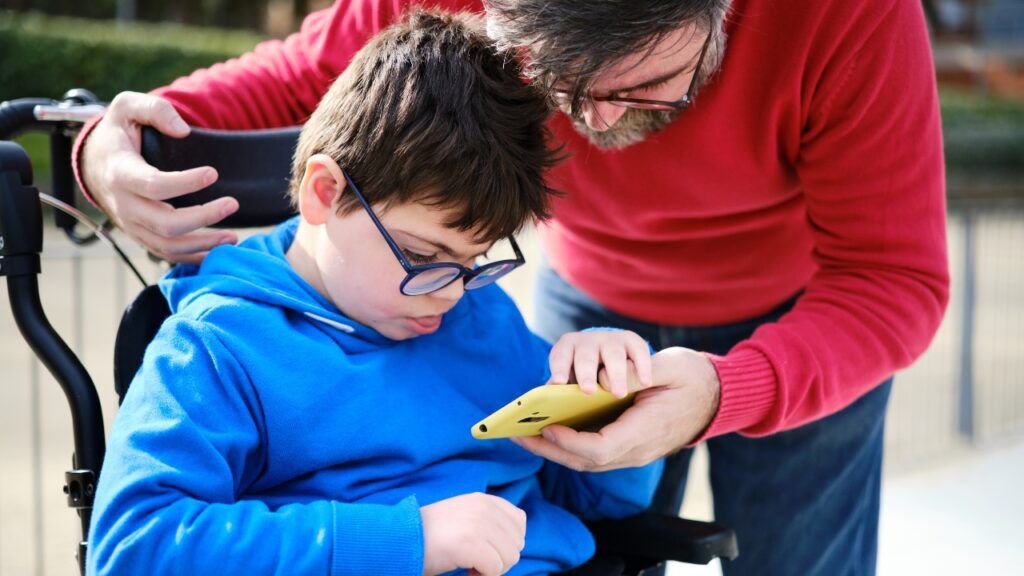Every child is special in their own way. But, some have unique needs. These are kids diagnosed with autism, ADHD, learning disabilities, and emotional complications. Wonderful beings! Loved by their families and valued by their community. Yet their needs often become so great that they find it hard to select a school. Some public schools simply do not have the right resources for them.

I hope you enjoy reading this blog post. If you want to do my course on how to homeschool, click here.
Article written by guest poster, Charli Davis.
Good thing there is homeschooling.
Recently, homeschooling has gained popularity among parents because of its customised offering. It provides an education that aligns with a child’s strengths and weaknesses.
Parents can also select teaching methods, curriculum, and materials that suit their child best.
But how can you ensure that homeschooling is effective enough for your child with special needs?
Let’s take this issue further by considering the pros and cons of homeschooling.
The Upsides of Homeschooling
- Homeschooling creates a nurturing environment.
- Allows children with needs to focus on their learning without feeling intimidated.
- Parents can change their schedules to cope with therapy, doctor appointments, and rest.
- Speech or occupational therapy can be easily built into a homeschooling routine.
- Contrary to beliefs, homeschooling engages kids in community groups, activities, and
classes.
The Problems with Homeschool Education
- There are emotional and mental tolls that come with homeschooling. (And they can be
overwhelming for beginners!) - Getting evaluations, educational resources, and expert help might be problematic.
- Although homeschooling involves personalised instruction, you must tackle out-of-control behaviours and cognitive challenges.
- Regulations applicable to homeschooling may vary depending on where you live.
If you find that all these things are well within your capacity, then you can take the
homeschooling journey with positivity.
Who Are Considered Children with Special Needs?
The National Disability Services lists the different types of disability as follows:
- Neurodevelopmental Disorders – Intellectual disability, Autism spectrum disorder (ASD),
Attention-deficit hyperactivity disorder (ADHD) - Physical Disability – Multiple-Sclerosis, Chronic Arthritis, Cerebral Palsy, Chronic Fatigue
Syndrome - Vision Impairment
- Hearing Impairment
- Deafblind (Dual sensory)
- Speech Language Impairment
- Psychosocial Disability
- Developmental Delay
Children who fall within these categories may need a dedicated learning approach.
Their case may be more complicated than we think, but there’s a silver lining.
Let’s look at some special needs and how to accommodate their education.
 Autism Spectrum Disorder (ASD)
Autism Spectrum Disorder (ASD)
ASD is a condition that affects the way a child communicates and grasp the world around them.
It is a “spectrum” in the sense that people with ASD experience it in unique ways.
And in learning, they may prefer structured routines, visuals, and direct instructions.
Attention-Deficit Hyperactivity Disorder (ADHD)
Another common disorder is ADHD, which is related to attention, hyperactivity, and impulsivity.
Surprisingly, even adolescents and adults are affected by this neurodevelopmental condition.
So, how do we deal with their learning needs?
It’s advisable to take breaks as often as you can and give reminders through a visual to help children focus.
Specific Learning Disorder
Such cases comprise dyslexia, dyscalculia, and dysgraphia.
Learners with these educational issues may enjoy multi-sensory techniques and supportive
technology.
Speech Language Impairment
This condition can cause a child to have difficulty talking or understanding language. It might also disturb their swallowing.
With the help of speech therapy and special gadgets, speech-impaired kids can get better at communicating.
And, of course, there’s plenty more to explore beyond the scope of this guide.
Starting Homeschooling for Children with Special Needs
We can’t stress this enough: You must thoughtfully plan homeschooling for your special needs child. Take the following steps:
Check Homeschooling Regulations
Make sure to be familiar with the homeschooling regulations in your area.
Registration, curriculum requirements, legal status—consider them all.
Need help with specific state information? Here are some sources for homeschooling in Australia.
Understand Your Child
Know your child’s learning style, strengths, and weaknesses. At best, consider prognoses or recommendations stated in a report by child experts.
Select a Homeschooling Model and Curriculum
There’s a plethora of education techniques and homeschool curricula!
Explore them and discover what suits your child most.
A potential method for special needs children could be Units Studies.
They move from one unit to another, taking a specific theme and exploring many subject matters simultaneously.
Get Support
Locate resources and organisations that can support you in homeschooling your child.
Examples are internet platforms, support groups, or experts.
Make a Flexible Schedule
This one applies to both parents and children. You have to develop a plan that works for your child and fits into your daily schedule.
During learning sessions, give room for breaks (a lot of it!) and for things they are most interested in.
Be Ready to Adapt
Keep trying to make adjustments based on your kid’s progress. And stay positive about it!
Adjust the teaching method and syllabus design where necessary so kids can better absorb knowledge.
Is Special Training or an Independent Learning Plan Required?
Homeschooling is an alternative education. That said, you are not required to have expert training or an Individualized Education Plan (IEP) as traditional schools do. But they might be good, too.
You can get strategic skills from educational texts and supplemental learning platforms. You may also learn from the support and experience of parents already homeschooling.
As simple as that.
And there’s no reason why you can’t use an Individualized Learning Plan (IEP) for your homeschooler. It will outline what your kids need in their studies. Create one and share it with professionals and support networks.
Best of luck on your homeschooling journey!

 Autism Spectrum Disorder (ASD)
Autism Spectrum Disorder (ASD)

